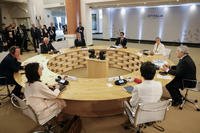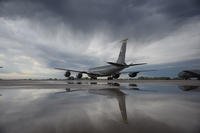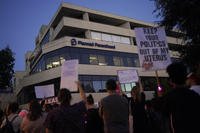The U.S. will deploy more Special Forces troops to Iraq as part of a "targeting force" against the Islamic State, Defense Secretary Ashton Carter told Congress on Tuesday.
Carter described the elite soldiers as a "specialized expeditionary targeting force to assist Iraqi and Kurdish Peshmerga forces … [and] conduct raids, free hostages, gather intelligence and capture ISIL leaders."
He also said the force will also be well-positioned to conduct "unilateral operations" into Syria.
Carter did not say how many U.S. troops would be involved in the effort. The White House announced in late October it was sending "fewer than 50" Special Forces soldiers to northern Syria, where they serve as advisers to Syrian rebels.
On Tuesday, Carter told lawmakers the Special Forces soldiers in Syria "will aid [rebel] ground forces" but that he could not provide additional details in a public hearing. He also said the U.S. will do more to assist local fighters emerging on the side of the rebels.
"Every time we find them we'll enable them," he said. "The point is not numbers [of Americans on the ground]. The point is capability."
The Iraq-bound Special Forces soldiers and the missions described by Carter appear to resemble the force that rescued the hostages in Hawija, Iraq, in October, when a Delta Force team joined with Kurdish Peshmerga fighters to rescue hostages slated for execution by ISIL.
One Delta Force soldier died in the assault, though the joint operation succeeded in rescuing the hostages. About 20 ISIS fighters were killed.
Successes by the targeting force, he said, will create a "cycle of better intelligence, which generates more targets, more raids, and more momentum."
While the missions conducted inside Iraq will be done "at the invitation of the Iraqi government," operations in Syria -- where the established government of Bashar al Assad is opposed by U.S.-backed rebels -- will be unilateral, Carter said.
--Bryant Jordan can be reached at bryant.jordan@military.com. Follow him on Twitter at @bryantjordan.





























